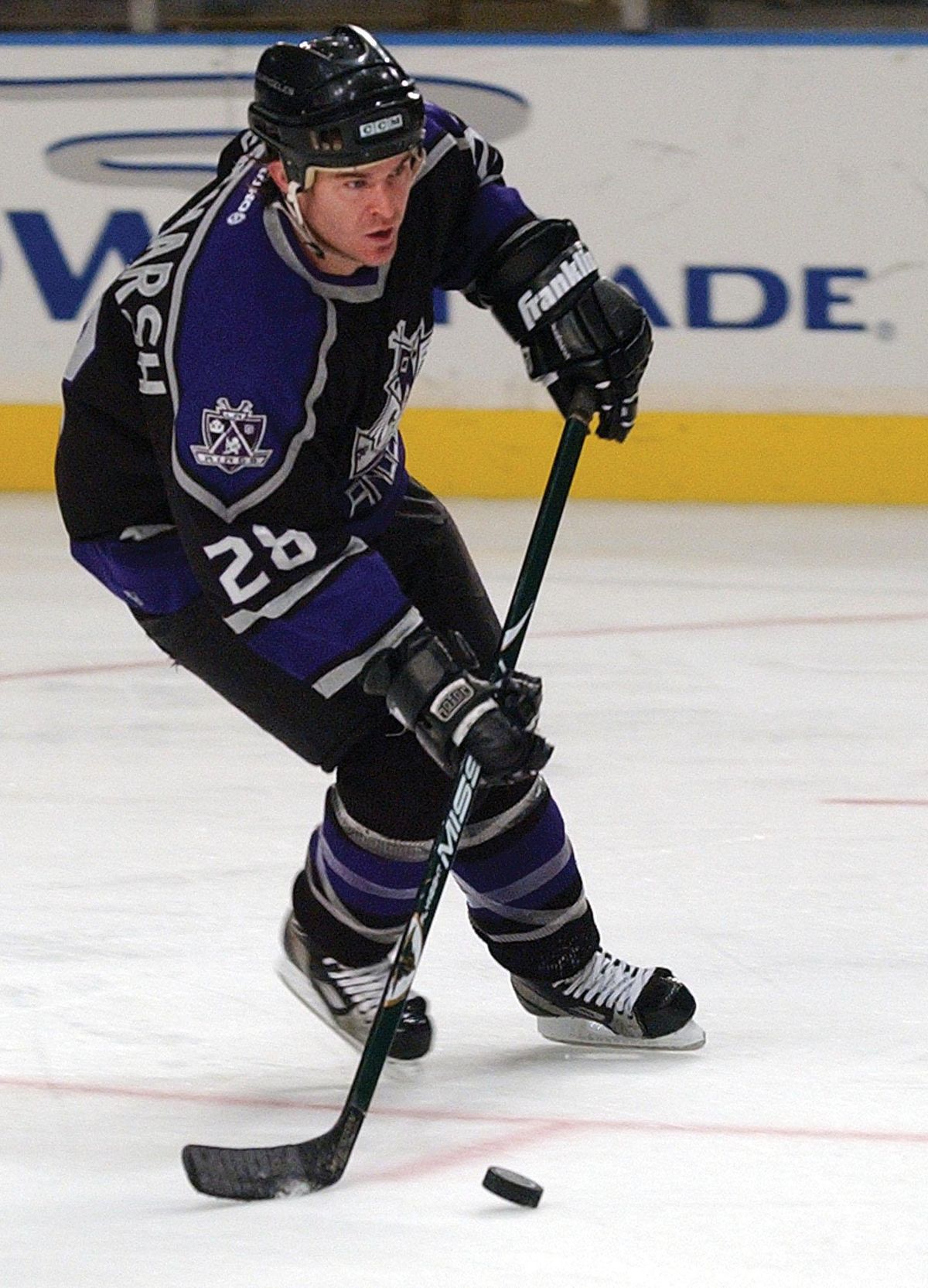Adam Deadmarsh embracing chance to be back on the ice as Spokane Chiefs assistant coach

Ethan McIndoe frequently sits next to assistant coach Adam Deadmarsh, reviewing his shifts from recent Spokane Chiefs hockey games.
Both are generally considered to be quiet and unassuming. McIndoe, now in his fourth year with the Chiefs, earned the distinction as the team’s Unsung Hero last year, and the Hardest-Working Player the season before that. And the forward loves the time working with Deadmarsh, who is back for his second year as an assistant coach.
“I like to think that he and I played a similar game,” McIndoe said before practice Monday. “I’ve watched his clips on YouTube, and the style of play, it’s there. It’s pretty similar: gritty, hard to play against, going to the net and scoring greasy goals.”
Deadmarsh was a forward for Quebec, Colorado and Los Angeles in the NHL after playing for the Western Hockey League’s Portland Winterhawks.
This is his third stint at hockey. He’s hoping that, unlike his playing career and his first go at coaching six years ago, this time he doesn’t have to step away because of postconcussion symptoms.
“It’s one of those things that sticks with you,” Deadmarsh said.
The Chiefs are eager to keep him around as long as his health will allow, because he brings a wealth of experience and understanding.
“It’s like having a guy with a doctorate in the game of hockey on your staff,” head coach Dan Lambert said.
Deadmarsh built his reputation as a forward who would get in a goalie’s face and hustle for pucks in the corner. While those skills might be less common now, it’s not because teams don’t need players who possess them.
“The reality is, I think every NHL team would love to have a player like him. The problem is, there’s not many players who choose to play the way he played,” Lambert said.
“The little detail that he can bring to our group, especially the wingers, the players who need to play in those areas that are not so much fun – in front of the net, in the corners – this is where he made a living, and a real good one. It’s not an easy way to do it. The knowledge he can provide for those players is incredible.”
Deadmarsh has also adapted to the game as it is now.
“Things that may or may not have worked 10 years ago maybe aren’t necessarily in place in today’s game,” Deadmarsh said. “Really trying to embrace guys’ skill and speed, and help them flourish with those talents, has been a big adjustment for me, coming from a guy who really never had a lot of skill, and watching what these kids can do is a lot of fun.
“I get to suggest they try certain things that never in my wildest dreams would I have tried myself, but they can pull it off.”
That includes cross-ice passes between two or three defenders, or other plays that might have been deemed too risky – or illegal – when he was a player two decades ago.
Deadmarsh might sell himself short as a “skill player,” whatever that term might mean. In 587 career games, he scored 184 goals, had 189 assists and boasted a career plus-47. Drafted 14th overall in the 1993 NHL draft, he won a Stanley Cup with the Avalanche in 1996 and played for Team USA in two Olympics, 1998 and 2002.
But concussions ended his career shortly after that second Olympics. In Kings practice in 2003, he collided with a teammate and suffered his final concussion. Although he was just 27, he never again played in the NHL.
He returned to hockey in 2009 as an assistant coach with the Avalanche, but in 2012 he had to leave that position because of lingering symptoms. Again, he headed back to the region he always called home.
A native of Fruitvale, British Columbia, Deadmarsh grew up near enough to Spokane that it was the big city his family drove to for school shopping and other big errands in pre-Amazon days. He even attended some Chiefs games.
In 2017, when Lambert was hired, Deadmarsh was again living back in North Idaho and decided to reach out to general manager Scott Carter to “throw his name in the hat,” as Deadmarsh puts it. He missed hockey and was ready – and healthy enough – to try again.
Deadmarsh doesn’t skate during every practice, and when he does it is only to work with a few guys off to the side. The risk of taking a puck to the head just isn’t worth it. He also sits upstairs during games, rather than being on the bench. But that has its benefits.
“From a coaching standpoint, it’s nice to have someone looking down at the ice,” Deadmarsh said. “You get a whole perspective of systems and plays that are going on during the game that might be harder to see from ice level.”
Even if he can’t get out and skate during practice, just having a role with the team – one everyone in the organization says is incredibly valuable – is something he loves.
“That age is eager to learn, and they have lots to learn, which makes it a lot of fun, because you can really teach and you can see the progression,” Deadmarsh said. “It’s been a lot of fun to see the results of working with kids, so I’m getting a lot of joy.”